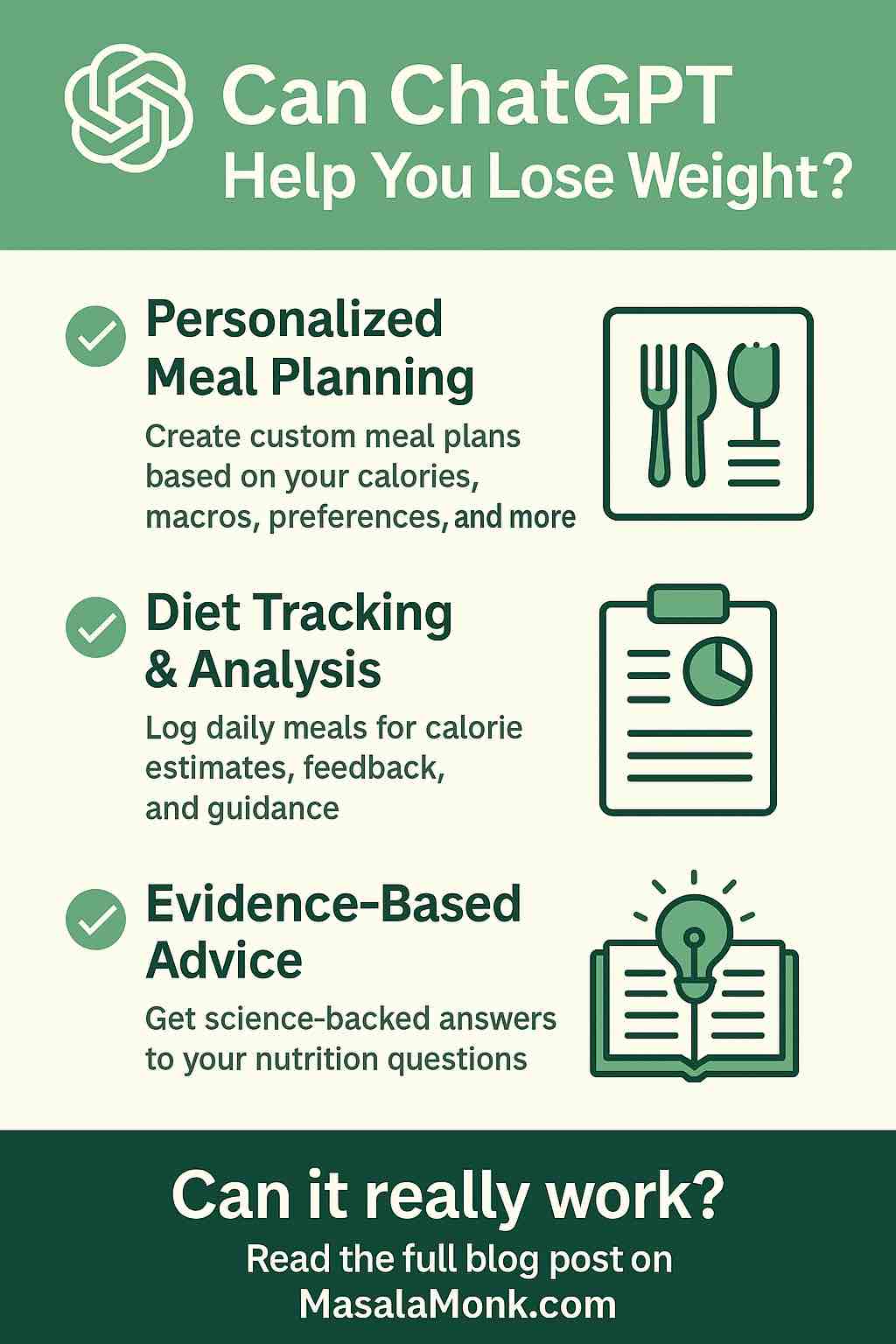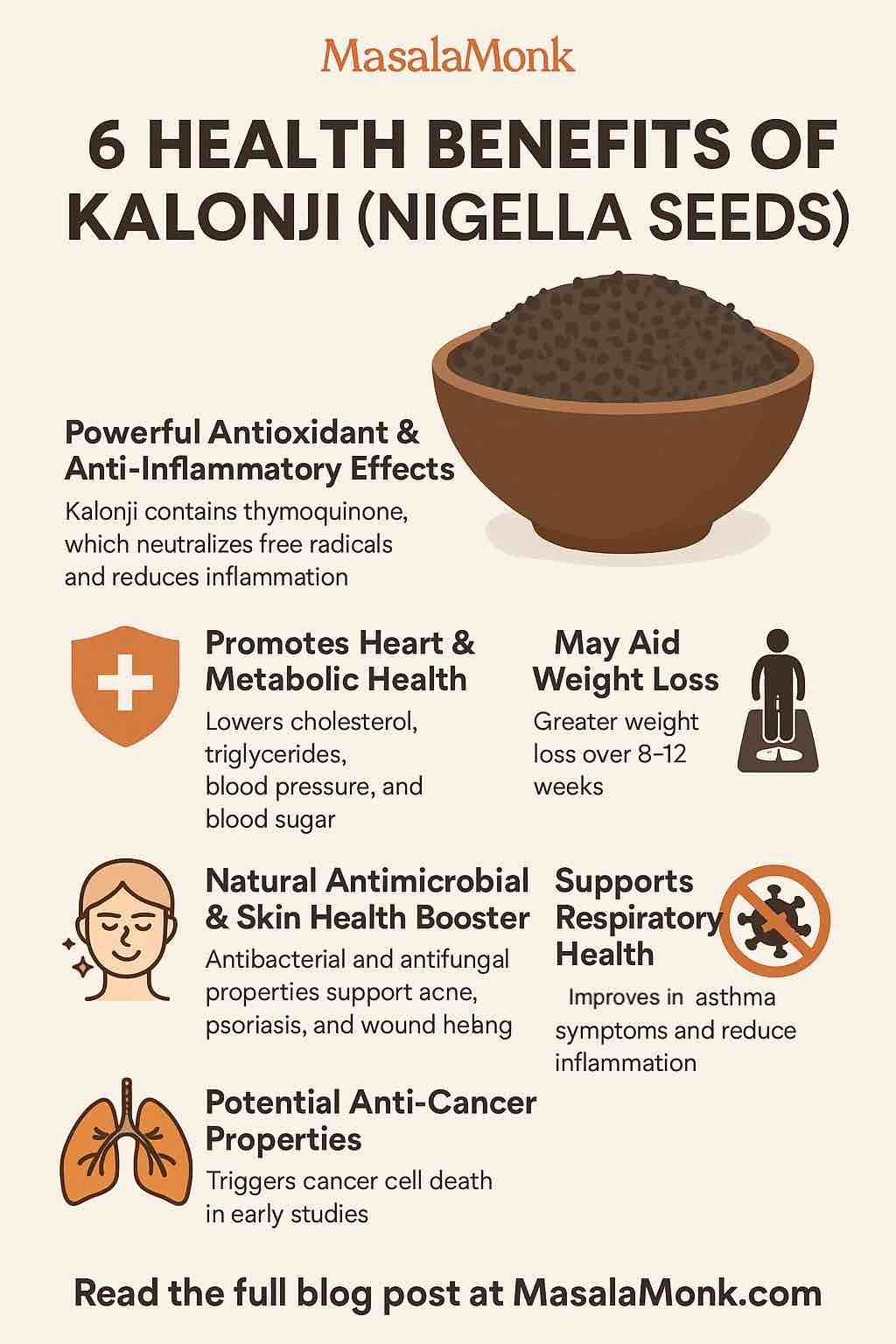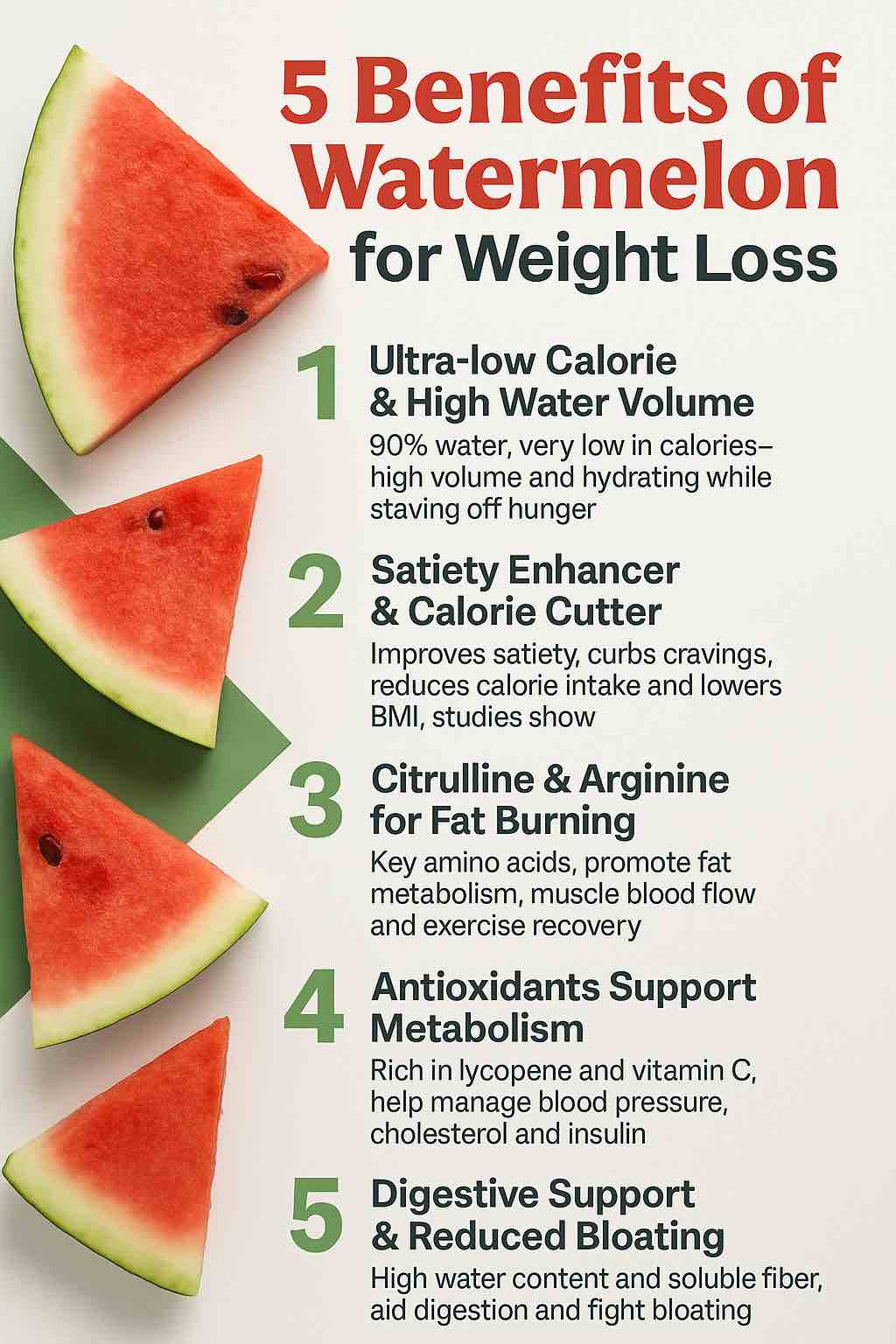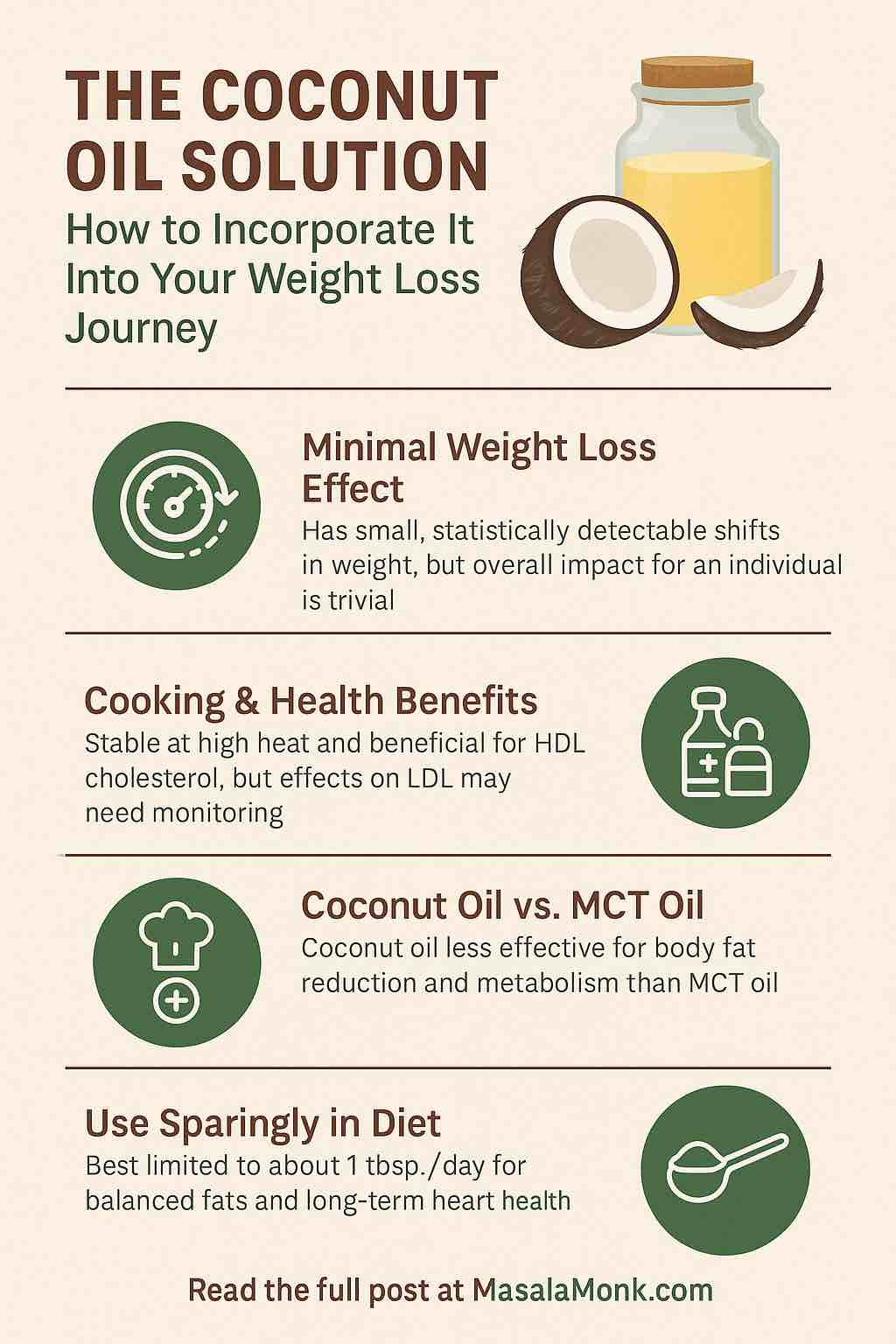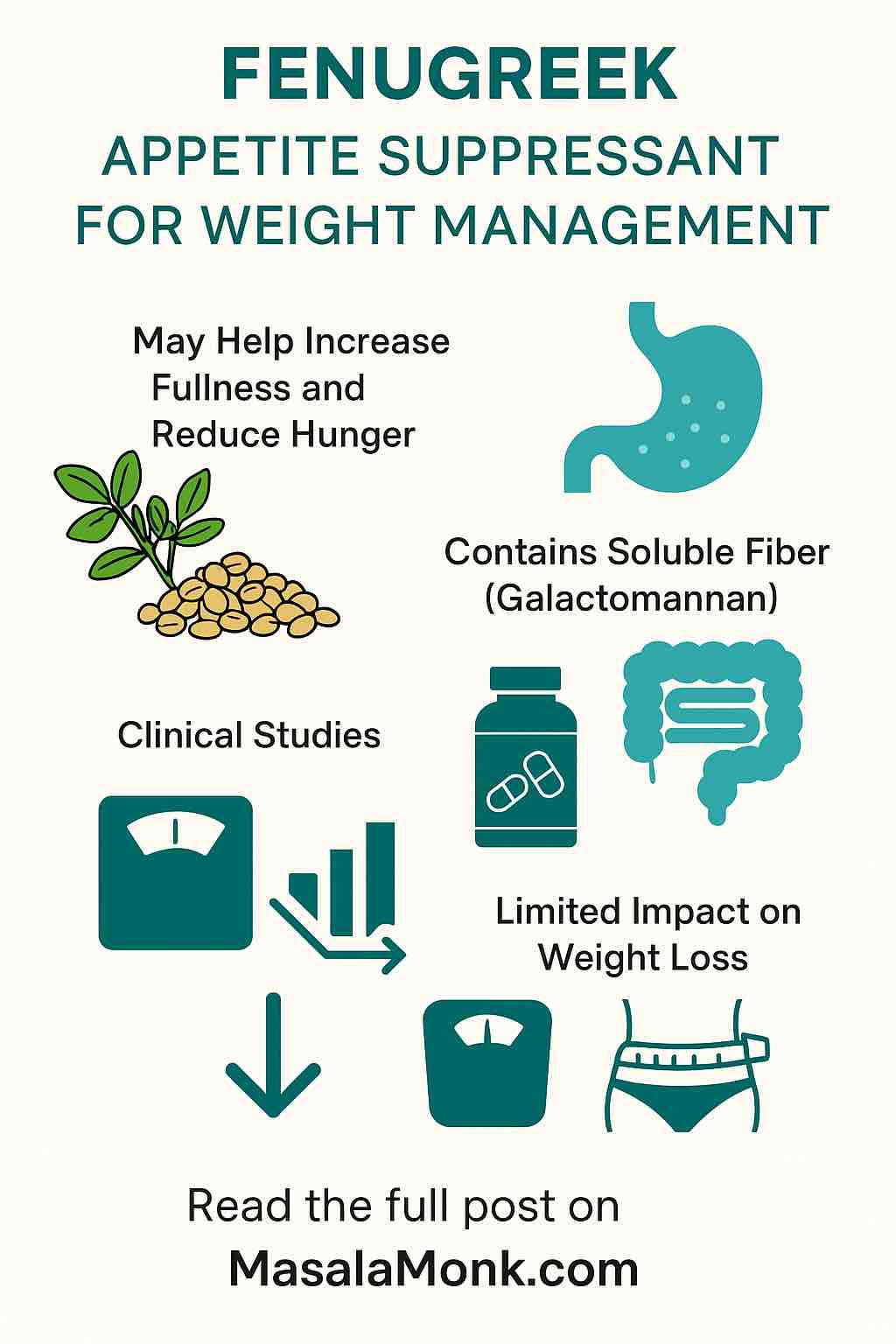
When it comes to natural ways to curb appetite and manage weight, fenugreek probably isn’t the first ingredient that springs to mind. This aromatic spice—best known for its role in curries and herbal teas—has quietly attracted the attention of nutrition scientists for its potential to help control hunger and promote a healthier metabolism.
But how strong is the evidence? Can fenugreek really help you eat less, feel fuller, and slim down? Let’s dig into the latest research, practical tips, and real-world advice on how to use fenugreek safely and effectively.
What Is Fenugreek?
Fenugreek (Trigonella foenum-graecum) is a plant native to the Mediterranean, India, and parts of Asia. Its seeds and leaves have been used in cooking, traditional medicine, and even ancient Egyptian embalming rituals. But it’s the seeds—rich in soluble fiber and unique phytochemicals—that have modern scientists excited about its health potential.
How Does Fenugreek Suppress Appetite?
The secret lies in soluble fiber, especially a compound called galactomannan. When you consume fenugreek seeds or fiber extracts, this fiber swells in your digestive tract, forming a gel-like substance. Here’s why that matters:
- Slows Gastric Emptying: Food stays in your stomach longer, so you feel full for more time after a meal.
- Blunts Blood Sugar Spikes: Slower digestion means glucose enters the bloodstream more gradually, helping prevent hunger-inducing sugar crashes.
- Enhances Satiety Hormones: Some studies show that fenugreek may boost fullness hormones while dampening those that trigger hunger.
But does this translate to real changes in how much you eat or your body weight? Let’s look at the science.
What Does the Research Actually Say?
1. Short-Term Satiety: Real Benefits for Fullness
- Small clinical studies have consistently shown that adding fenugreek fiber to breakfast or as a supplement increases feelings of fullness and decreases hunger, sometimes for hours afterward.
- In one U.S. trial, 18 overweight adults ate breakfast with or without fenugreek fiber (0g, 4g, or 8g). The 8g dose significantly boosted fullness and cut down hunger—without any side effects.
- Similar effects were reported in women drinking fenugreek tea before lunch, who rated themselves as “less hungry” and “more satisfied” after their meal—even if their actual calorie intake didn’t drop.
2. Impact on Eating Habits: Modest but Promising
- In a controlled trial with overweight men, those taking fenugreek extract for 6 weeks reduced their fat intake (as a percentage of total calories) compared to placebo, suggesting they made slightly healthier food choices when less hungry.
- However, total calorie intake and weight loss in these short studies were small or statistically insignificant.
3. Metabolic and Waistline Effects
- Recent meta-analyses (2023) covering dozens of randomized controlled trials found that fenugreek supplementation significantly reduced waist circumference (by about 2.5 cm) and improved cholesterol, triglycerides, and blood sugar in people at risk of metabolic syndrome.
- BMI and overall weight: The same research found little effect on total body weight or BMI, but waist size is often a better marker of “unhealthy” fat around the organs.
4. The Microbiome Link
- Cutting-edge animal research shows that fenugreek can improve the gut microbiome—a community of bacteria linked to appetite, fat storage, and blood sugar regulation. While these results haven’t been fully replicated in humans, they point to another possible mechanism for fenugreek’s appetite-modulating effects.
How to Use Fenugreek Practically
So, how can you put fenugreek’s benefits to work in your daily life? Here’s how:
1. Choose the Right Form
- Whole seeds: Great for cooking, but tough and bitter if eaten raw.
- Ground seed powder: Can be mixed into yogurt, smoothies, or oatmeal.
- Fenugreek tea: Mild taste, easy to drink before meals.
- Supplements/capsules: Convenient and standardized (look for those with at least 500 mg of extract standardized to galactomannan).
- Fiber extracts: Usually offer the most potent appetite-suppressing effect in research (aim for around 8g fiber per day, split into 2-3 doses).
2. When and How Much?
- Dose: Most appetite-suppressing effects appear at doses of 4–8g of fenugreek fiber per day, or the equivalent in extract.
- Timing: For best results, take it 15–30 minutes before meals with a full glass of water. This gives the fiber time to swell and trigger fullness signals.
3. What to Expect
- Fullness: You’ll likely notice feeling fuller after meals, which may help with portion control.
- Taste: Fenugreek has a slightly maple-like, bitter flavor—pleasant to some, strong to others. Pairing with bold flavors (curry, lemon, honey) can mask the taste.
- Digestion: Like all fibers, fenugreek may cause mild bloating or gas at first. Start with a smaller dose and build up over 1–2 weeks.
Who Should (and Shouldn’t) Use Fenugreek?
Fenugreek is generally safe for healthy adults, especially when used as a food or standard supplement. But consider the following:
- People with diabetes: May need to monitor blood sugar more closely, as fenugreek can enhance the effect of medication.
- Pregnant women: Should avoid high-dose fenugreek, as it can stimulate uterine contractions.
- Allergies: Rare, but possible—especially in people allergic to peanuts or chickpeas (same plant family).
- Medication interactions: Fenugreek can affect absorption of some drugs. Take it 1–2 hours apart from medications.
Always check with your healthcare provider if you have any medical conditions or are taking medications.
Realistic Expectations: Can Fenugreek Make You Lose Weight?
- Not a miracle cure: The evidence for significant, long-term weight loss is still limited. Most benefits are for controlling hunger, reducing fat intake, and improving waist size/metabolic health.
- Best as part of a healthy lifestyle: For optimal results, combine fenugreek with a diet rich in whole foods, plenty of protein and fiber, regular exercise, and mindful eating habits.
Key Takeaways
- Fenugreek’s soluble fiber is a natural, safe way to feel fuller and possibly reduce snacking or overeating.
- Clinical studies support improved satiety, healthier food choices, and reduction in waist circumference—but not dramatic weight loss.
- Doses of 4–8g fiber per day (from seeds, powders, or supplements) seem effective and are well-tolerated for most.
- Combine with healthy habits for best results—and talk to your healthcare provider before starting any supplement.
Want to Try Fenugreek?
Start by adding ground fenugreek seeds to soups, curries, or smoothies. Or try a standardized fiber supplement 15 minutes before your main meals. Track how your appetite changes, and let your body—and your tape measure—be your guide!
Have you tried fenugreek for appetite or weight management? Share your experience or questions below!
Fenugreek for Appetite & Weight Management: Top 10 FAQs
1. How does fenugreek help with appetite control?
Answer:
Fenugreek seeds are high in soluble fiber (galactomannan), which absorbs water and forms a gel in your stomach. This slows digestion, increases feelings of fullness, and helps curb appetite between meals.
2. Can fenugreek actually help me lose weight?
Answer:
Fenugreek may help reduce fat intake, increase satiety, and decrease waist circumference, but most studies show only modest effects on total body weight or BMI. It works best as part of a healthy diet and lifestyle, not as a sole weight-loss solution.
3. What is the recommended dosage for appetite suppression?
Answer:
Most research supports using 4–8 grams of fenugreek fiber daily, ideally split before meals. For extracts or capsules, follow product instructions, aiming for 500–1000 mg of standardized extract per dose.
4. How should I take fenugreek for best results?
Answer:
Take fenugreek fiber or extract 15–30 minutes before meals with a full glass of water. This gives the fiber time to expand and increase satiety signals before you start eating.
5. Are there any side effects to taking fenugreek?
Answer:
Fenugreek is generally safe, but some people may experience mild digestive symptoms like gas, bloating, or diarrhea, especially at higher doses. These usually resolve as your body adjusts.
6. Who should avoid fenugreek supplements?
Answer:
Pregnant women, people with severe allergies to legumes, and those on diabetes medications should avoid fenugreek or consult a healthcare provider before use due to possible uterine stimulation and blood sugar effects.
7. Can I use fenugreek seeds from the grocery store, or do I need a supplement?
Answer:
Both are effective! You can use whole seeds in cooking or grind them into powder for smoothies. Supplements and extracts are more convenient and easier to dose precisely, especially for clinical benefits.
8. Does fenugreek interact with medications?
Answer:
Yes, fenugreek can lower blood sugar and may interact with diabetes medications or anticoagulants. Always separate fenugreek by 1–2 hours from other oral medications, and consult your doctor if you have health conditions or take prescription drugs.
9. How long does it take to notice results from fenugreek?
Answer:
Most people notice increased fullness within the first few days of use. For metabolic changes or waist circumference reduction, expect to use fenugreek consistently for at least 4–8 weeks.
10. Are there any foods or recipes that pair well with fenugreek?
Answer:
Absolutely! Fenugreek has a unique, slightly maple flavor. Try adding ground seeds to curries, stews, lentil dishes, yogurt, or smoothies. Fenugreek tea is a popular pre-meal option for appetite control.

